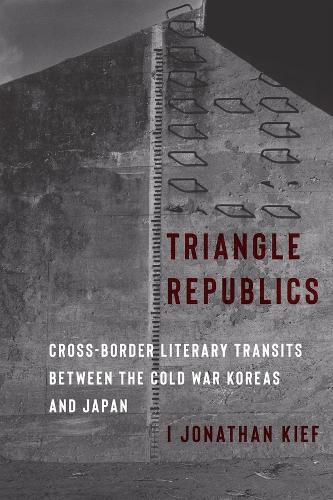Readings Newsletter
Become a Readings Member to make your shopping experience even easier.
Sign in or sign up for free!
You’re not far away from qualifying for FREE standard shipping within Australia
You’ve qualified for FREE standard shipping within Australia
The cart is loading…






In Korea, the end of the Second World War in 1945 brought both liberation from Japanese colonial rule and the division of the nation by the triumphant Allies. The peninsula was not only decoupled from its former colonial metropole but also carved up into two halves that were subsequently incorporated into the rival blocs of the emerging Cold War order. Although the two Koreas are typically seen as isolated from each other, texts continued to circulate between them-with the assistance of Korean diasporic and other colleagues in Japan-throughout the ensuing decades.
I Jonathan Kief follows the triangular flow of texts linking North Korea, South Korea, and Japan from 1945 until the 1980s, revealing overlooked paths of interaction and exchange. He highlights the creative ways in which poets, playwrights, novelists, critics, and academics crossed boundaries of language, ideology, genre, and geography to challenge the stability of the Cold War. By showing how writers in North and South Korea engaged in dialogue via the mediation of a multiethnic set of colleagues in Japan, Triangle Republics offers a new perspective on this era, emphasizing its vibrant, dynamic, and interconnected nature.
$9.00 standard shipping within Australia
FREE standard shipping within Australia for orders over $100.00
Express & International shipping calculated at checkout
In Korea, the end of the Second World War in 1945 brought both liberation from Japanese colonial rule and the division of the nation by the triumphant Allies. The peninsula was not only decoupled from its former colonial metropole but also carved up into two halves that were subsequently incorporated into the rival blocs of the emerging Cold War order. Although the two Koreas are typically seen as isolated from each other, texts continued to circulate between them-with the assistance of Korean diasporic and other colleagues in Japan-throughout the ensuing decades.
I Jonathan Kief follows the triangular flow of texts linking North Korea, South Korea, and Japan from 1945 until the 1980s, revealing overlooked paths of interaction and exchange. He highlights the creative ways in which poets, playwrights, novelists, critics, and academics crossed boundaries of language, ideology, genre, and geography to challenge the stability of the Cold War. By showing how writers in North and South Korea engaged in dialogue via the mediation of a multiethnic set of colleagues in Japan, Triangle Republics offers a new perspective on this era, emphasizing its vibrant, dynamic, and interconnected nature.